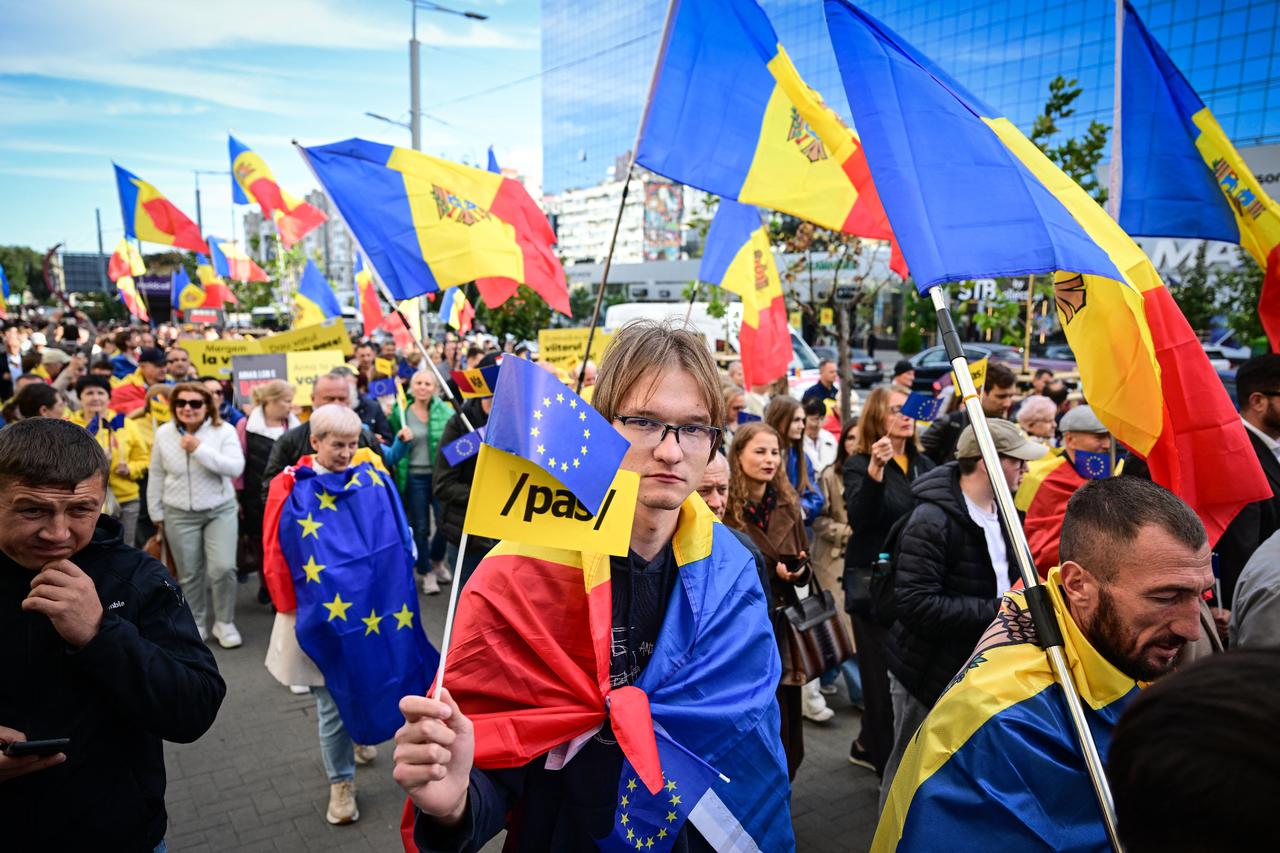
Moldovan President Maia Sandu’s pro-European Party of Action and Solidarity (PAS) won a new majority in parliamentary elections, according to preliminary results announced Monday by the Central Election Commission (CEC).
The ruling party hailed its victory in polls overshadowed by allegations of Russian interference, calling the result the outcome of an “extraordinarily difficult struggle” to secure a narrow parliamentary majority.
The small EU candidate nation, which borders Ukraine and includes the pro-Russia breakaway region of Transnistria, has long been split over whether to deepen ties with Brussels or maintain Soviet-era relations with Moscow.
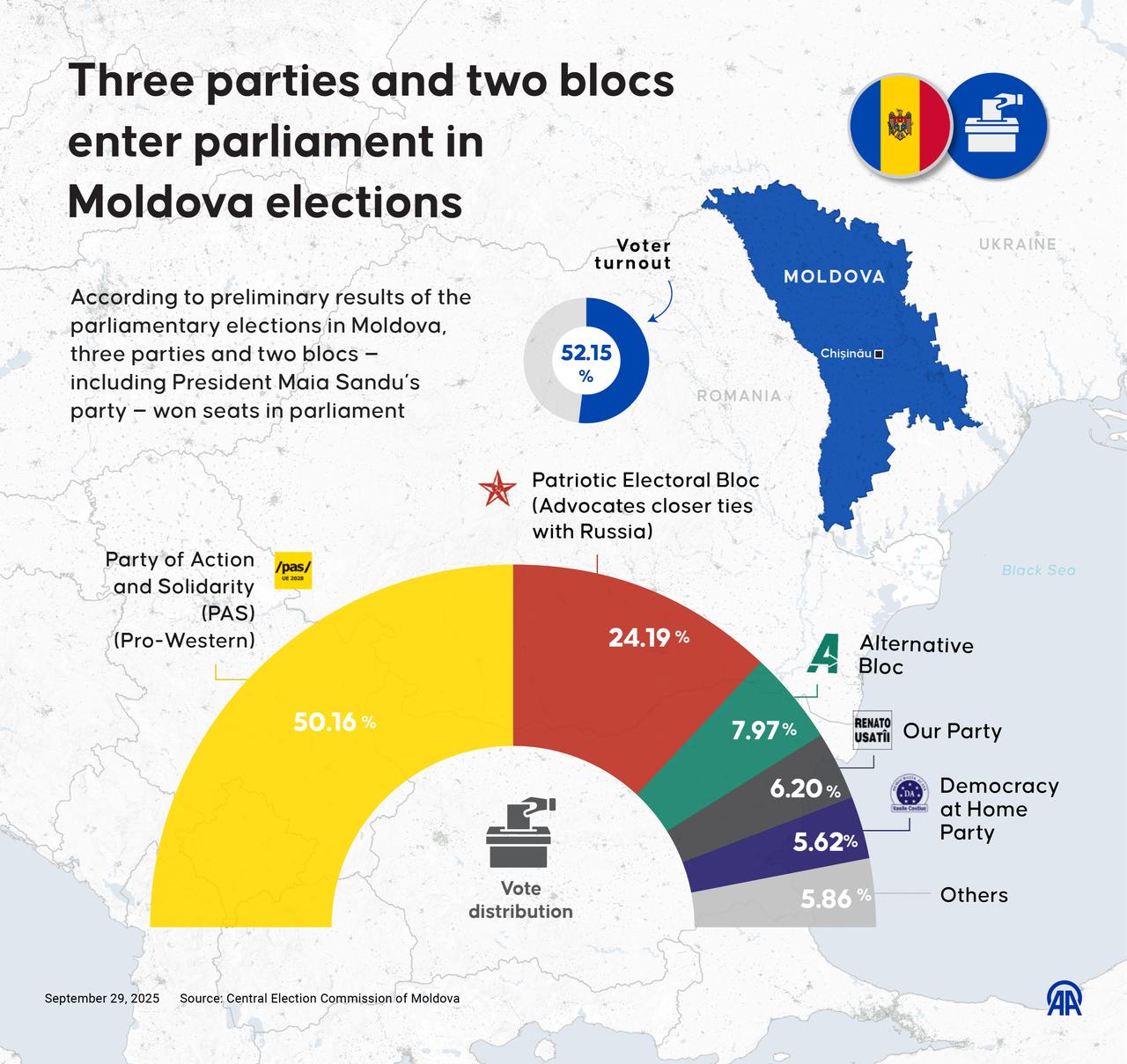
With 99% of the 1.6 million ballots counted, PAS won about 50% of the vote, with turnout above 52%.
The party is expected to secure roughly 55 seats in Moldova’s 101-seat parliament.
The pro-Russian Patriotic Bloc, led by former President Igor Dodon, received about 24% of the vote, while the Alternative bloc, headed by Chisinau Mayor Ion Ceban, secured 7%.
CEC figures later showed PAS with 50.16% of the vote, compared with 24.19% for the Patriotic Bloc. That is slightly lower than the 52.8% PAS won in 2021.
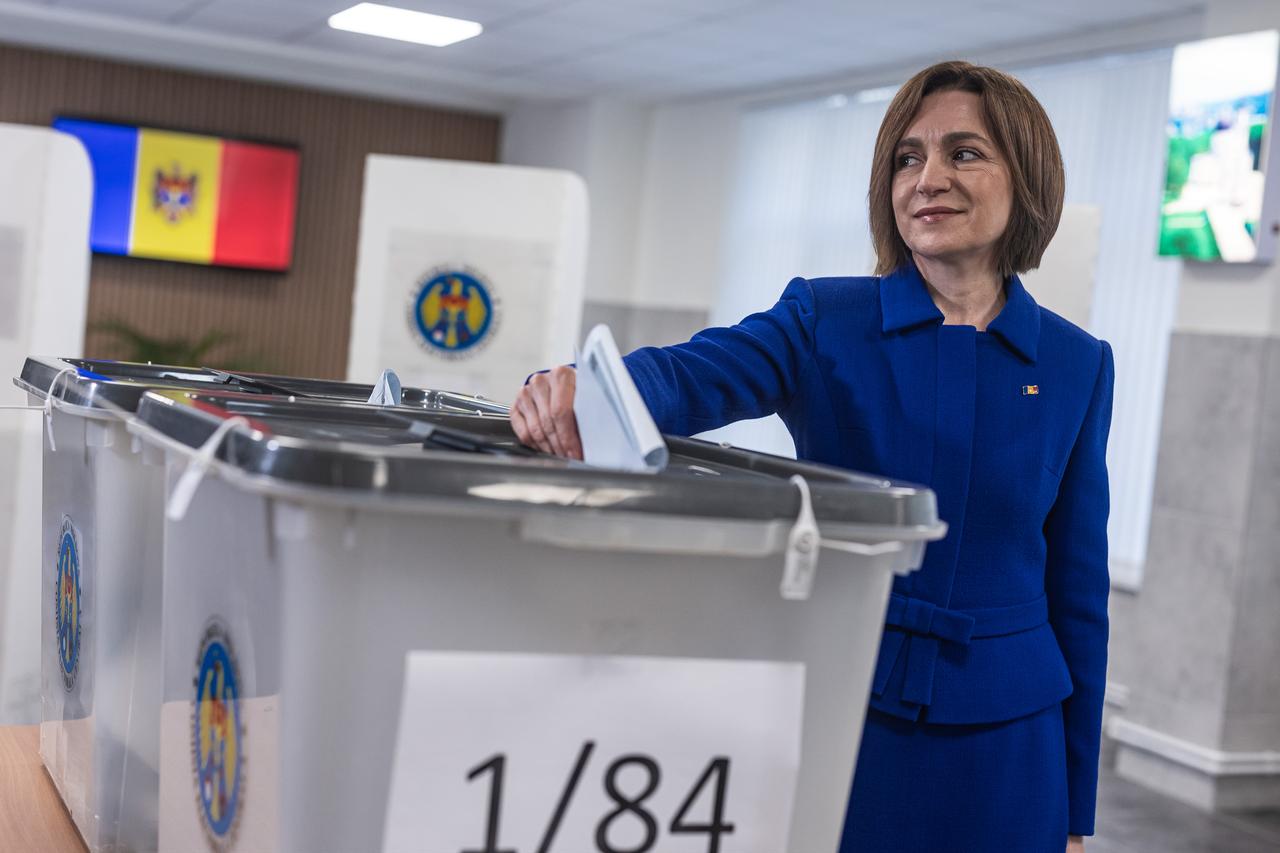
Moldova’s Foreign Ministry said bomb threats were reported at several polling stations abroad on Sunday, describing them as part of Russia’s “assault on the electoral process.”
Separately, the country’s Information Technology and Cyber Security Service (STISC) said Moldova’s electoral infrastructure, including the CEC website, had been targeted by multiple cyberattacks since Saturday.
Sandu has repeatedly accused Russia of trying to sway the election. In July, she said Moscow was “investing in multiple political vehicles” to increase its influence in parliament.
Russia has denied the allegations, instead accusing Moldovan authorities of dividing citizens by limiting polling stations in Russia while expanding them across Europe.
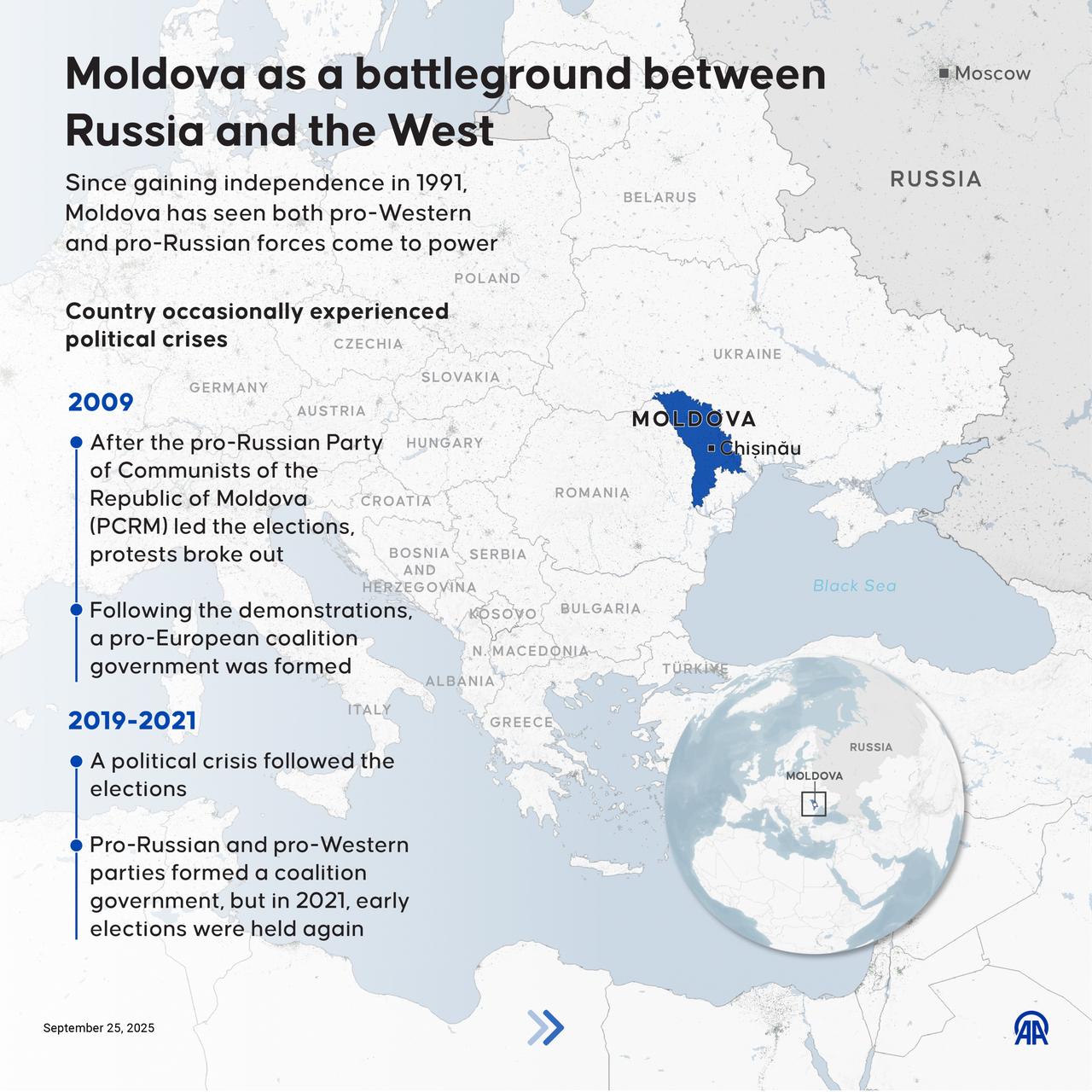
The Kremlin has also accused the EU and NATO of plotting to “occupy Moldova” and intimidate Transnistria, a region controlled by pro-Russian separatists since the early 1990s.
Sandu has described the vote as the “most consequential” since Moldova’s independence from the Soviet Union in 1991.
Under her leadership, PAS has moved the country closer to Brussels, securing EU candidate status in 2022 and opening accession talks in June 2024.
A referendum in October of that year narrowly enshrined EU membership into the constitution.
“Russia threw everything dirty it had into the fight … It’s not only PAS that won the elections, the people won,” PAS leader Igor Grosu told reporters at a press conference.
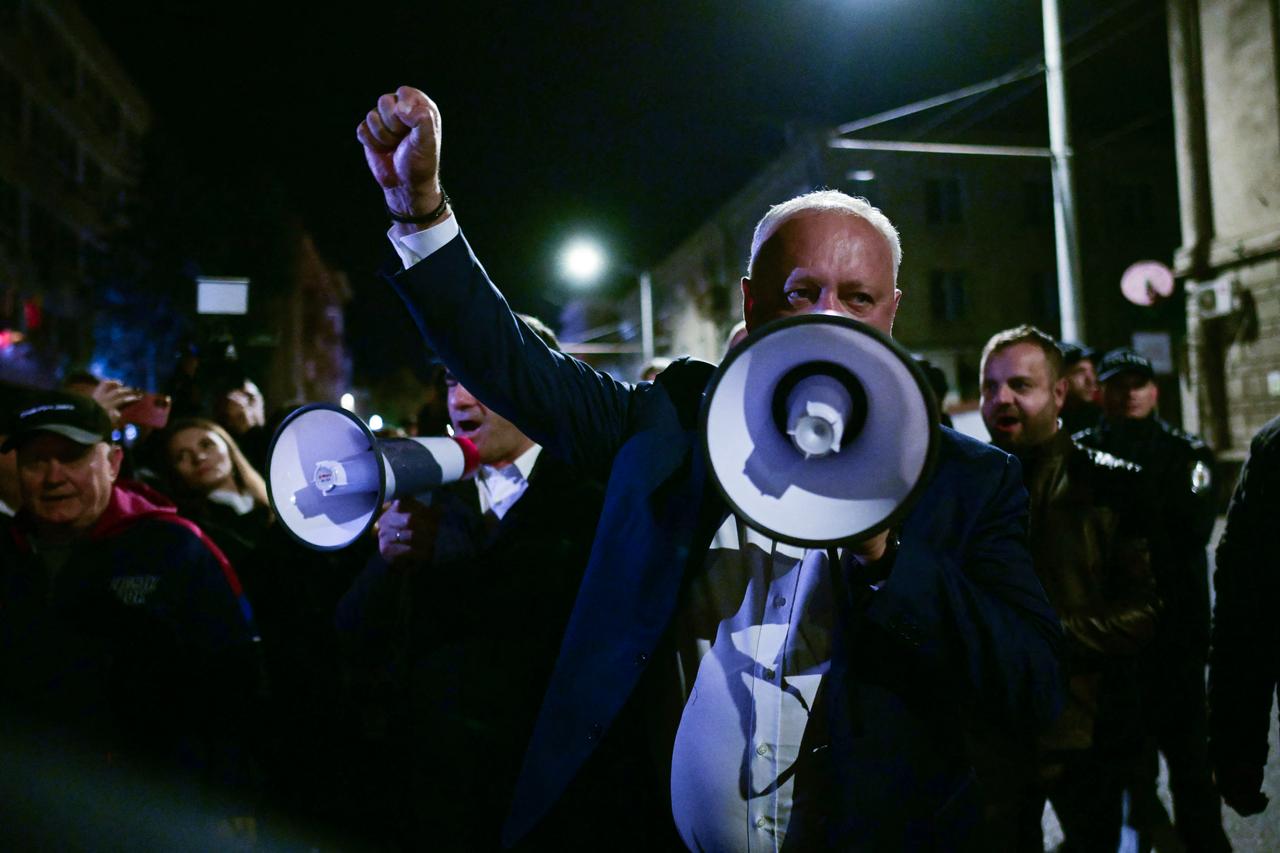
In Chisinau, voters expressed both optimism and skepticism. “It’s very nice to wake up in a Moldova that chose the right path: peace, development, and stability,” said Nadir Grinco, 25, who works in organizational communication.
Another voter, 75-year-old pensioner Liuba Peribicovski, said the result was “negative” for her, voicing disappointment with the EU.
European leaders hailed the result. Ukrainian President Volodymyr Zelenskyy said Moldova had resisted Russian attempts to destabilize the country.
European Council President Antonio Costa called it a choice for a “European future.” Leaders in Poland and France also congratulated Moldovans on what they described as a sovereign decision.
Analysts, however, warned that the victory is fragile. “Statistically speaking, PAS has guaranteed a fragile majority,” said Andrei Curararu of the Chisinau-based think tank WatchDog.md.
“But danger has not passed, as a functional government is difficult to form.”
Curararu said Russia may continue to stir unrest, noting the Kremlin had “bankrolled too big of an operation to stand down” and could try to bribe lawmakers or organize protests.
Dodon has already called on supporters to “peacefully protest,” accusing PAS of election fraud. “If during the night there are falsifications … we will ask for elections to be repeated,” he said late Sunday.
The government has accused Moscow of channeling hundreds of millions of dollars in “dirty money” to influence the vote. Prosecutors said they conducted hundreds of searches linked to “electoral corruption” and “destabilization attempts,” arresting dozens of people.
Turnout stood at about 52%, similar to the previous parliamentary elections in 2021.